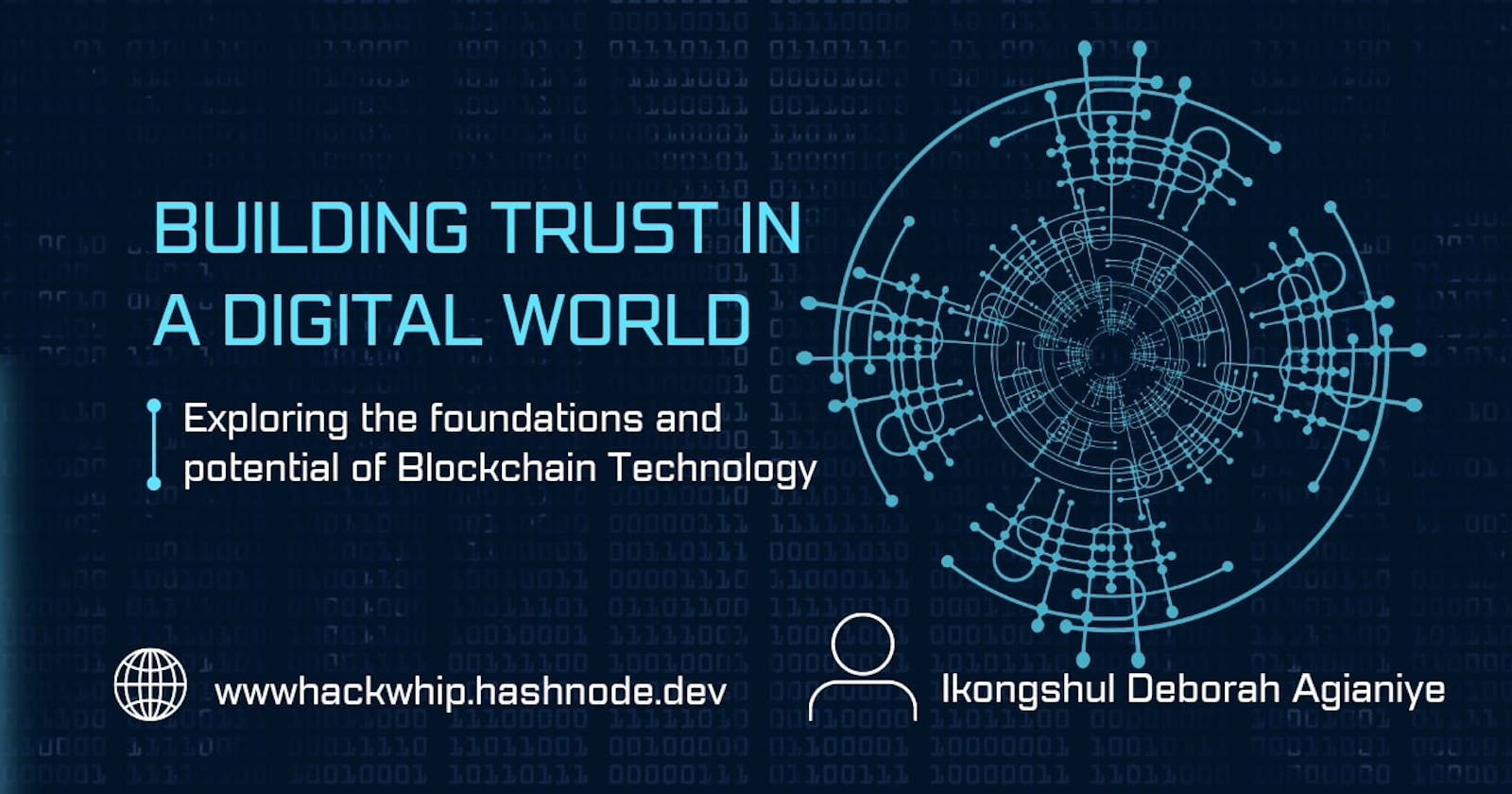Blockchain is a revolutionary technology that has emerged as the backbone of the digital world. Initially introduced as the foundation for cryptocurrencies like Bitcoin, it has evolved into a powerful and versatile tool with far-reaching implications beyond financial applications.
At its core, a blockchain is a decentralized and distributed ledger system; which makes it a data system. Unlike traditional centralized databases managed by a single authority, a blockchain operates on a vast network of computers, known as nodes, spread across the globe. These nodes work together to maintain a shared database without the need for a central intermediary, fostering a trustless and transparent environment.
The term "blockchain" originates from its structure: it is composed of a chain of blocks, with each block containing a collection of data records or transactions. These blocks are linked together in a chronological order using cryptographic hashes, creating an unbroken and tamper-resistant chain. Once data is recorded on the blockchain, it becomes virtually impossible to alter or delete it, ensuring data integrity and immutability.
Blockchain technology is distinguished by its immutability. Unlike traditional database transactions, blockchain transactions cannot be altered once they have been recorded. This provides a high level of security and ensures the integrity of the data stored on the blockchain. In addition, the transparent nature of blockchain allows for real-time auditing and verification, making it an ideal data system for applications that require trust and transparency.
Blockchain technology relies on a consensus mechanism to validate and record transactions. The most commonly used consensus mechanism is Proof of Work (PoW) or Proof of Stake (PoS), which requires network participants, known as miners, to solve complex mathematical problems to validate transactions and create new blocks. This must be done before a new block can be added to the chain. This process ensures that only valid data is added to the blockchain, preventing fraudulent or malicious activities.
Another important aspect of blockchain as a data system is its ability to create smart contracts. Unlike traditional contracts, smart contracts are self-executing agreements written directly into code. When predetermined conditions are met, these contracts are automatically executed on the blockchain. As a result, intermediaries are not needed, and fraud and errors are reduced. By eliminating the need for intermediaries blockchain fosters trust and provides a tamper-resistant environment for secure transactions and data storage.
Blockchain's decentralized nature and cryptographic security make it highly resilient against attacks, making it an ideal solution for secure data storage and transactions. Its transparency and auditability also foster trust among participants, as anyone can verify the data's accuracy and authenticity.
Beyond cryptocurrencies, blockchain technology has found numerous applications in different industries. It is transforming finance, supply chain management, healthcare, real estate, digital identity verification, voting systems, and more, revolutionizing how data is managed, shared, and protected. In the financial sector, blockchain can be used to streamline cross-border payments, reduce transaction costs, and improve security. In supply chain management, blockchain can provide visibility and traceability, ensuring the authenticity and quality of products. In healthcare, blockchain can securely store and share patient data, enabling interoperability and improving patient outcomes.
Despite its many potential benefits, the blockchain is not without its challenges. The technology is still relatively new and complex, requiring significant computational power and energy consumption; this has raised concerns about the ecological impact of blockchain operations. Scalability is also a concern, as the current blockchain networks have limited transaction throughput compared to traditional databases. Regulatory hurdles and legal complexities surrounding blockchain technologies can pose obstacles, especially when dealing with cross-border transactions and data privacy regulations. However, ongoing research and development efforts are addressing these challenges and improving the scalability and efficiency of blockchain systems.
In conclusion, the blockchain has emerged as a powerful data system that offers security, transparency, and immutability. Its decentralized nature and consensus mechanisms ensure the integrity of the data stored on the blockchain. With its potential to impact various industries, blockchain is poised to reshape the way we store, manage, and exchange data in the future.
